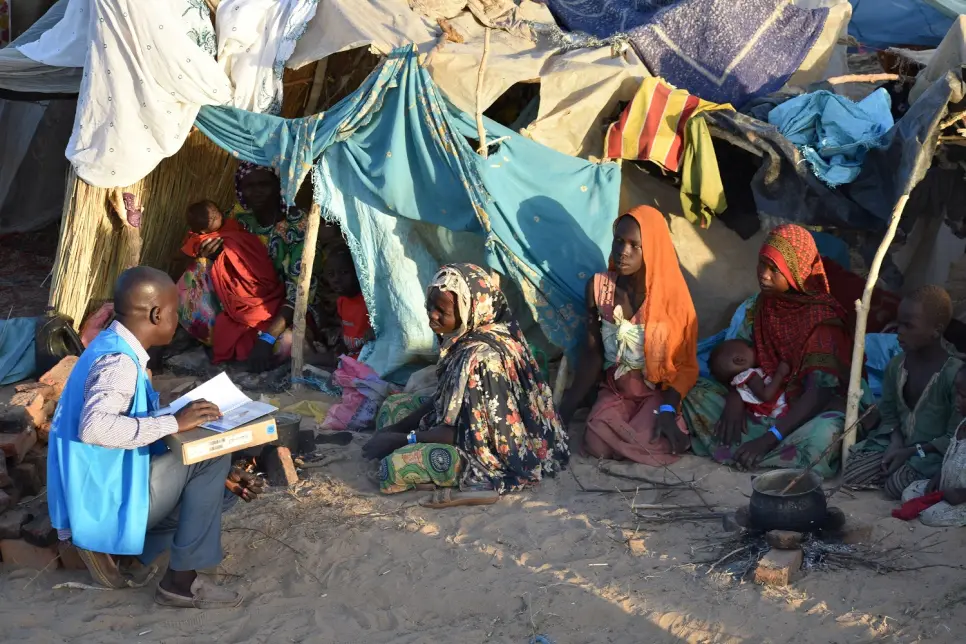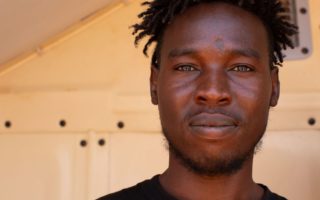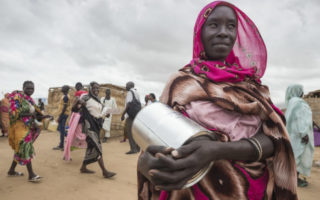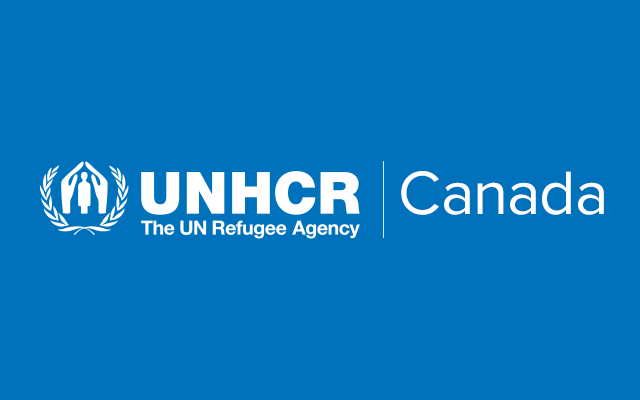
A staff member with UNHCR, the UN Refugee Agency, talks to Sudanese people who have just arrived in Adre, Chad, as refugees. © UNHCR/Aristophane Ngargoune
This is a summary of what was said by UNHCR spokesperson Babar Baloch – to whom quoted text may be attributed – at today’s press briefing at the Palais des Nations in Geneva.
Clashes in El Geneina, in Sudan’s West Darfur State, have forced more than 12,000 people to flee as refugees into neighbouring Chad since last month. Four thousand of them have fled during last week alone and it is estimated that the clashes have displaced some 46,000 inside the country.
Most of them were already internally displaced people and when attacks happened in West Darfur in late December 2019, including on displacement camps, people fled and found temporary refuge in schools, mosques and other buildings in El Geneina.
With El Geneina only 20 kilometers from the border, thousands of refugees crossed into Chad, a number UNHCR anticipates could reach 30,000 in the coming weeks as tensions persist. UNHCR teams on the ground are hearing accounts of people fleeing after their villages, houses and properties were attacked, many burnt to the ground.
In Chad, the refugees are currently scattered in several villages along a line that spans nearly 100 kilometers near the border, around the town of Adré, in the province of Ouaddaï which already hosts 128,000 Sudanese refugees. The conditions are dire. Most are staying in the open or under makeshift shelters, with little protection from the elements. Food and water are urgently needed, while health conditions are a concern.
UNHCR, the UN Refugee Agency, its Government counterpart and humanitarian partners are on the ground and coordinating the response to this emergency, registering refugees and providing lifesaving aid including food, water, relief items. Refugees needing special care, including unaccompanied children, are being identified and assisted.
However, the rate of refugee arrivals risks outpacing our capacity. More resources and support will be required to bolster the response.
Together with the Chadian government, UNHCR is in the process of identifying a new site further from the border, where the refugees can be relocated and receive the security and assistance they desperately need.
Meanwhile in West Darfur, UNHCR and other humanitarian actors are also rushing relief items such as blankets, sleeping mats and jerry cans to assist displaced men, women and children at over three dozen gathering points. In the past week, trucks with additional relief items arrived from UNHCR’s warehouses in other Darfur states, with more aid on the way.
UNHCR continues to seek international community’s support for the transitional government of Sudan in addressing the root causes of the conflict in Darfur. Restoring security will be key for peacebuilding. This will also allow much needed development assistance to support sustainable solutions, including the return of Sudanese displaced inside the country and living as refugees, once conditions are conducive.
For more information on this topic, please contact:
- In Chad, Simplice Kpandji, kpandji@unhcr.org, +235 68 59 30 60
- In Khartoum, Roland Schönbauer, schoenb@unhcr.org, +249 912 179 387
- In Geneva, Babar Baloch, baloch@unhcr.org, +41 79 513 9549
Originally published by UNHCR on 28 January 2020





